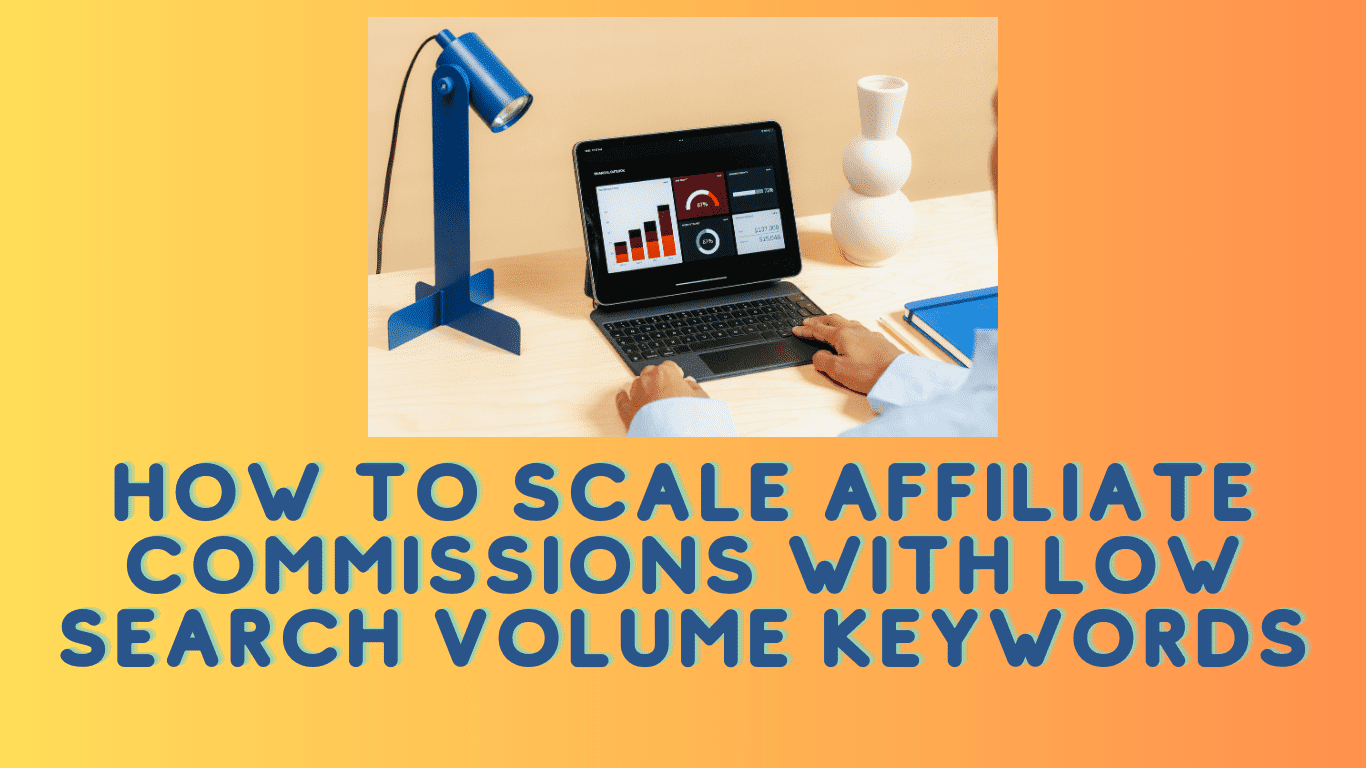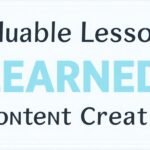How to Keyword Research for Affiliate Marketing Success
Keyword research forms the backbone of any successful affiliate marketing strategy. It helps you uncover the exact phrases potential customers are searching for, enabling you to tailor content that ranks well and drives traffic. Whether you’re just starting out or looking to refine your approach, mastering the “how to keyword research” process is key.
By leveraging tools like Wealthy Affiliate and Jaaxy, you’ll gain the insights needed to find low-competition keywords and tap into profitable niches. These platforms simplify complex processes, making it easier for beginners to get started and for seasoned marketers to scale their efforts.
With no risk involved, Wealthy Affiliate even offers a free trial—perfect for anyone looking to explore affiliate marketing without upfront commitments.
Key Takeaways
- Keyword research is critical for affiliate marketing to attract targeted traffic and rank on search engines.
- Use tools like Jaaxy and Wealthy Affiliate to find low-competition, high-traffic keywords.
- Focus on long-tail keywords for specific intent and better conversions.
- Target keywords with low difficulty (KD) and high SEO potential.
- Optimize titles, headings, and meta descriptions with natural keyword placement.
- Monitor keyword rankings using tools and adjust strategy based on performance data.
- Update underperforming content and track competitors for opportunities.
- Ensure content aligns with the search intent of your audience.
Understanding Keyword Research
Keyword research is at the core of every successful online marketing strategy. It’s the art of understanding what your audience is searching for and tailoring your content accordingly. Whether you’re building a blog, growing an affiliate marketing business, or optimizing a website, mastering how to keyword research can make all the difference.
Some of the links contained within this article may contain affiliate links. This means if you click one and make a purchase, I may earn a small commission at no additional cost to you. This commission helps support my site and keeps me motivated. Thank you in advance!
What is Keyword Research?
Keyword research is the process of identifying the words and phrases people type into search engines when looking for information, products, or services. These search terms, or “keywords,” act as a bridge between your content and your audience. For anyone in affiliate marketing, it’s like a compass guiding your direction—pointing you toward what your audience truly wants.
By leveraging tools like Jaaxy, you can uncover data about keyword popularity, competition, and potential traffic. This information helps you strategically plan your content around terms users are actively searching for.
Imagine fishing in a vast ocean. Without the right bait (keywords), your chances of catching anything are slim. But with the right bait, you not only attract more fish but also the specific kind you’re looking for—your target audience.

Why is Keyword Research Important?
Keyword research is a foundational aspect of SEO and digital marketing for several reasons:
- Improved Visibility: Keywords help search engines understand the topic of your content. Optimizing for the right terms helps your pages rank higher and appear in front of more eyes.
- Targeted Traffic: By focusing on specific phrases, you attract visitors genuinely interested in what you offer. For example, targeting “affiliate marketing tips for beginners” will bring in users eager to learn about starting an affiliate business.
- Content Direction: It provides clarity on what topics to write about. This ensures every piece of content directly aligns with your audience’s needs.
- Competitive Advantage: Understanding what your competitors rank for helps you find opportunities they may have overlooked. This is where tools like Jaaxy shine, helping you analyze competition and uncover untapped niches.
- Affiliate Marketing Success: Platforms like Wealthy Affiliate simplify the process by combining keyword research with training and tools designed for beginners and experts alike.
In short, keyword research is your roadmap to creating content that matters. Without it, your efforts might lack focus, leading to poor engagement and missed opportunities. Want to dive deeper into why keyword research matters? Take a look at this insightful guide for additional perspectives.
By understanding and applying keyword research effectively, you’re not just guessing what your audience needs—you’re answering their questions and solving their problems directly.
How to Conduct Keyword Research Effectively
Keyword research is the starting point for creating content that resonates with your audience and ranks on search engines. Without it, your content strategy feels like shooting arrows in the dark. Done right, keyword research enables you to uncover hidden opportunities, focus on profitable niches, and create content that answers your audience’s most pressing questions.
Identify Your Niche
Understanding your niche is foundational to effective keyword research. A niche is your specific corner of the market—a focused subject that resonates with a targeted audience. Why is this important? When you know your niche, you understand the language and needs of your audience.
For instance, if you’re in the affiliate marketing space, a niche could be helping beginners start their journey or teaching advanced strategies to seasoned marketers. Identifying this focus ensures your keyword research aligns with what your potential customers are searching for. If you’re unsure about your niche, platforms like Wealthy Affiliate provide tools to help you explore and refine it.
Use Keyword Research Tools
Keyword research tools simplify the process of finding the best keywords for your niche. One standout tool is Jaaxy, designed specifically for affiliate marketers. It offers features like traffic analytics, keyword difficulty insights, and competitor research.
Try Jaaxy Now!
30 Free Searches On Me With This Widget!
With Jaaxy, you can identify high-traffic, low-competition keywords that align with your content goals. This tool eliminates the guesswork, making it easier for you to focus on creating value-driven content.

Analyze Keyword Metrics
Not all keywords are created equal. To select the right ones, analyze metrics like search volume and competition:
- Search Volume: This indicates how many people search for a term each month. Higher search volume often means more traffic but also more competition.
- Keyword Difficulty (KD): This tells you how tough it is to rank for a keyword. Aim for low-difficulty keywords, especially if you’re just starting out.
- SEO Potential: Look for keywords that align with your audience’s intent, whether it’s informational, navigational, or transactional.
For a step-by-step breakdown of keyword research strategies, explore additional insights on how to start affiliate marketing.
Long-Tail Keywords vs. Short-Tail Keywords
Keywords can be categorized into two types: long-tail and short-tail. Understanding the difference is key:
- Short-Tail Keywords: These are broad terms like “affiliate marketing.” They have high search volume but intense competition.
- Long-Tail Keywords: These are more specific, such as “how to start affiliate marketing as a beginner.” While they attract less traffic, they often convert better because they reflect a user’s specific intent.
For affiliate marketing, long-tail keywords are your best bet. They allow you to target a focused audience and rank more easily in search engines. Think of long-tail keywords as a cheat code for reaching people ready to act.
By mastering these techniques, you’ll not only simplify your keyword research process but also ensure your content reaches the right audience.
Try Wealthy Affiliate for Free!
Unlock the full potential of your online business with Wealthy Affiliate. Start with the free Starter Account today—no credit card needed, no risk, and absolutely zero cost!
Try for Free Now!Implementing Keywords in Your Content
After identifying the right keywords, the next step is implementing them effectively. Proper keyword usage can make or break your SEO strategy. This section will help you understand how to use keywords purposefully in your content while maintaining a natural flow.
Optimizing Titles and Headings
Your titles and headings are the first things search engines and users notice. Think of them as your content’s billboard—if they’re not compelling, you lose attention. Here’s how to incorporate keywords in titles and headings effectively:
- Include Keywords Early: Place your primary keyword near the beginning of your title or heading. For instance, “How to Keyword Research Effectively” works better than “Tips and Tricks for Researching Keywords.”
- Keep It Relevant: Avoid stuffing multiple unrelated keywords into a single title. Search engines can penalize you for trying to game the system.
- Use Subheadings Wisely: Break your content into sections using H2 and H3 tags, and include related keywords naturally. This improves readability and SEO.
For more actionable insights on content structuring, check out this guide on creating valuable content.

Using Keywords in Content Body
Incorporating keywords in your content body should feel seamless. Think of keywords as ingredients in a recipe—they enhance the dish but shouldn’t overpower it. Here’s how to integrate them effectively:
- Aim for Natural Flow: Write for humans first, search engines second. Forced keyword placements look awkward to readers and can hurt rankings.
- Use Variations: Sprinkle in synonyms and related terms to make the content richer and more engaging. For example, alternate between “how to keyword research” and “keyword research techniques.”
- Maintain Density: Aim for a keyword density of about 1-2% of the total word count. Tools like Jaaxy can help optimize density without overdoing it.
By focusing on quality rather than quantity, you’ll make your content both reader-friendly and search-engine-friendly.
Meta Tags and Descriptions
Meta tags and descriptions are your content’s elevator pitch to search engines and users. They summarize your page’s purpose and are a critical area for keyword placement.
- Incorporate Primary Keywords: Add your main keyword naturally in your meta title and description. For example, “Learn how to keyword research and drive traffic to your affiliate marketing site.”
- Keep It Brief: Meta titles should be around 60 characters, and descriptions should stay under 160 characters. This ensures they display properly on search engine result pages (SERPs).
- Enhance Click-Through Rates (CTR): Use action-oriented language combined with keywords to entice users to click. Phrases like “discover effective strategies” can boost engagement.
By optimizing titles, integrating keywords naturally in your content body, and refining meta tags, you ensure your content gets the visibility it deserves. This strategic approach not only improves your search rankings but also enhances the overall user experience.
Monitoring and Adapting Your Keyword Strategy
Keyword research is not a one-and-done task. To stay competitive, you need to regularly monitor your keywords and adjust your strategy based on performance data. Think of it as tending a garden—you plant the seeds (keywords), but consistent care and attention are required to see them thrive.
Track Keyword Rankings
Tracking your keyword rankings is essential to understanding how your content is performing in search results. It allows you to identify what’s working and what isn’t. Here are some effective ways to monitor keyword rankings:
- Use Keyword Tracking Tools: Tools like Jaaxy make it simple to track your rankings on Google, Yahoo, and Bing. Such platforms allow you to set up alerts for ranking changes and provide detailed insights.
- Automate the Process: Automation saves time. Platforms like DashThis let you monitor fluctuations without manual intervention.
- Check Mobile and Desktop Rankings: Rankings can differ between mobile and desktop searches. Make sure to track both to get a full picture of your performance.
- Analyze Competitors: Competitor tracking tools can reveal which keywords they are ranking for, giving you ideas for improvement.
As you monitor rankings, keep an eye out for patterns. For instance, if certain long-tail keywords consistently rank higher, they might deserve more focus in your content strategy.

Adjusting Your Strategy Based on Analytics
Once you’ve tracked your keyword performance, the next step is making data-driven adjustments. Your analytics provide a treasure trove of information to refine your keyword focus. Here’s how to act on that data:
- Identify High-Performing Keywords: Look for keywords driving the most traffic. These are your star players. Use tools like Google Analytics or Jaaxy to pinpoint them.
- Spot Underperforming Keywords: Keywords with low rankings or engagement need attention. Consider updating old content or using better internal links like this guide on affiliate pitfalls.
- Focus on Search Intent: Sometimes, a keyword might need a different content approach. For example, if a keyword suggests informational intent, ensure your content provides clear, valuable insights.
- Experiment with Variations: Not all audiences use the same terms. Test variations of your keywords to appeal to a broader group.
- Monitor SERP Changes: Search engines frequently update their algorithms. Regularly reviewing your keyword analytics ensures you can adapt to these changes without losing traffic.
By staying proactive and regularly updating your approach, you can ensure your content remains relevant and competitive in the ever-changing world of SEO.
Conclusion: The First Step to Mastering Keyword Research
Keyword research isn’t just a task; it’s the foundation of successful affiliate marketing. By using tools like Wealthy Affiliate, anyone can explore profitable niches without overwhelming complexity. Platforms like Jaaxy simplify the process even further by uncovering untapped keyword opportunities, helping you stay one step ahead of competitors.
But success in affiliate marketing isn’t about blindly following steps—it’s about taking smart, calculated actions. Understanding what your audience searches for and creating content that meets their needs ensures that your efforts yield tangible results.

If you’re just getting started, consider diving deeper into strategies with external resources like HubSpot’s beginner guide to keyword research. And as you refine your process, remember that tools like Mailchimp’s keyword tips offer great insights for expanding your reach.
By strategically incorporating keywords into your content, optimizing meta tags, and regularly monitoring their performance, you’ll build an affiliate marketing strategy that’s both effective and sustainable.
Hi, it’s Michael here again! My goal is to support YOU in any way I can on your journey to affiliate marketing success. If you’re interested in exploring the platform that transformed my success, click the button below to visit Wealthy Affiliate. You can create a free Starter Account today—no credit card required—and gain direct access to me as your personal mentor. I’ll be here to guide you and answer any questions along the way.
Thank you, and I look forward to helping you succeed!










